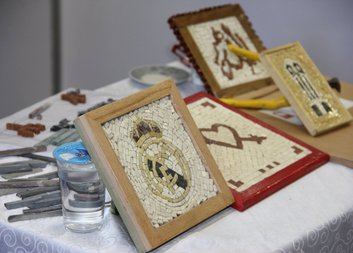Over the last two and a half years, Caritas Czech Republic along with Caritas Jordan endeavoured to develop the work capacity of Syrian refugees and their Jordanian hosts. The aim being that the refugees will be able to conduct their own gainful activity. After courses in diverse skills (e. g. sewing, cooking and jewellery making courses) Caritas also provided to successful graduates with material and financial relief to establish an enterprise. Delegates of the European Union accompanied by charity workers came to see four entrepreneurs at towards the end of the program.
In all these cases the entrepreneurs were women in the Irbid province which hosts largest percentage of refugees in country. The entrepreneurs warmly greeted the visitors and informed them about their initial steps in doing business.
Sameera Hassan Raheel
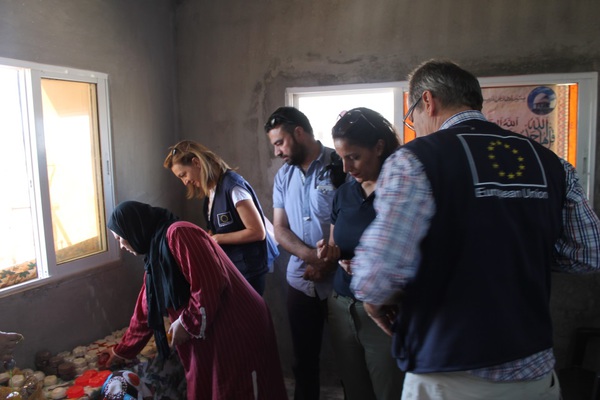 Syrian Sameera lives in small rented house full of ornately packed soaps stacks. She introduced delegation to her daughter-in-law who supports her in doing business then explained the benefits of her individual products and how to best use them.
Syrian Sameera lives in small rented house full of ornately packed soaps stacks. She introduced delegation to her daughter-in-law who supports her in doing business then explained the benefits of her individual products and how to best use them.
Sameera has sold goods to approximate value of $133.70. Her first costumer was traveller from the Persian Gulf who become acquainted with her soaps thanks to her daughter-in-law’s Facebook profile.
Sameera believes in extending awareness about her production beyond the neighbourhood in the future. At the close of the meeting visitors bought products valuing $26.70.
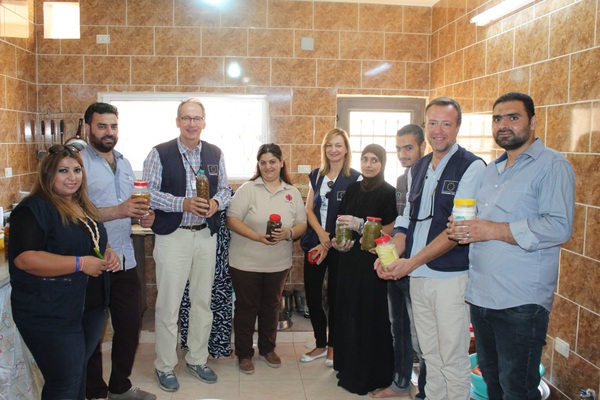 Neha Anwar
Neha Anwar
Neha from Syria attended a pickled vegetable production course. She works alone and has been selling goods in the neighbourhood and local markets for several months now. She earns $133.3/month on an average, but she believes that her earnings will grow with better promotion. From Caritas she received necessary materials and equipment, she also supplements her knowledge on food safety and hygiene education training.
Nahla Muhammad
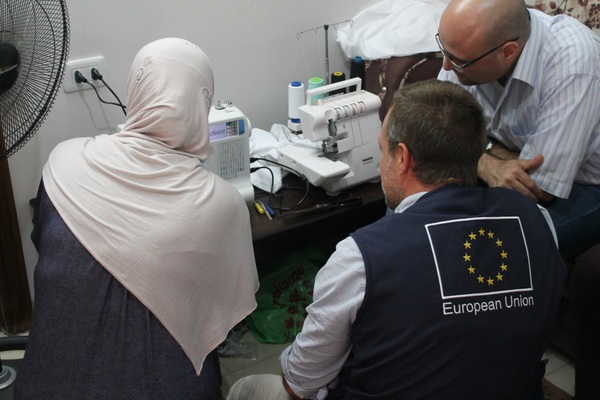 An energetic young Syrian, Nahla, is keen on sewing. She started with own production just a month ago after researching levels of demand and bought cloth. As soon as she started with her activities, she created a network in her neighbourhood which provides her orders and she supplies the goods. For example, at the time of visit she was working on producing six pillows which were made during two hours from materials costing $8. She sells the set of pillows for $26.7. After subtraction of electricity costs, she gets an adequate return. Nahla wishes for broader promotion and a better sewing machine in the future because her current sewing machine is not enough for complex orders.
An energetic young Syrian, Nahla, is keen on sewing. She started with own production just a month ago after researching levels of demand and bought cloth. As soon as she started with her activities, she created a network in her neighbourhood which provides her orders and she supplies the goods. For example, at the time of visit she was working on producing six pillows which were made during two hours from materials costing $8. She sells the set of pillows for $26.7. After subtraction of electricity costs, she gets an adequate return. Nahla wishes for broader promotion and a better sewing machine in the future because her current sewing machine is not enough for complex orders.
Bushra Muhammad
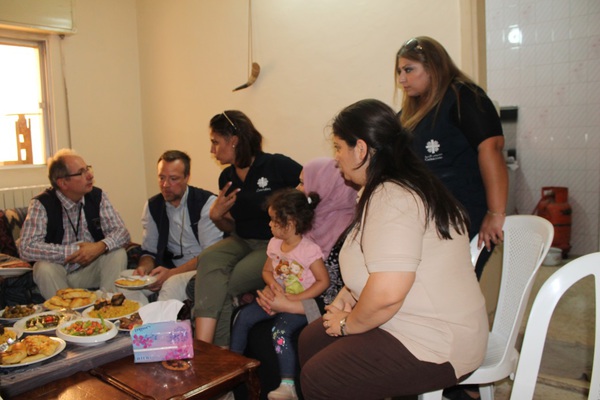 Jordanian Bushra was one of the youngest women that the delegation visited. She prepared with energy and enthusiasm all sorts of foods as she is a graduate of a cooking course. She uses her home kitchen as her workroom and workspace for creative expression.
Jordanian Bushra was one of the youngest women that the delegation visited. She prepared with energy and enthusiasm all sorts of foods as she is a graduate of a cooking course. She uses her home kitchen as her workroom and workspace for creative expression.
Permanent clientele consists of officials, young people from lodging-houses and students from the neighbourhood. In addition, Bushra provides a local non-profit organization with food for orphans during month of Ramadan. She was able to prepare up to 400 orders monthly so that she earned $668.4 in October. However, usually she only earns $13.3 per day. She dreams about new fridge in the future because the current one is not working well at the moment.
The visit by the European Union delegation together with Caritas workers went well and they wished good luck to new entrepreneurs in following months.

